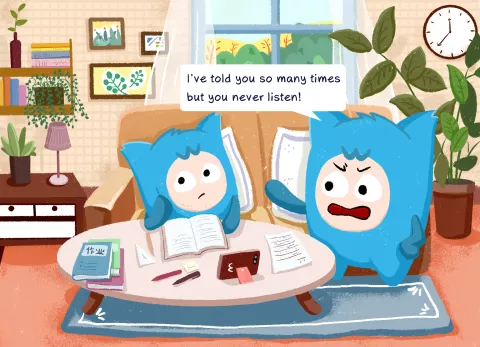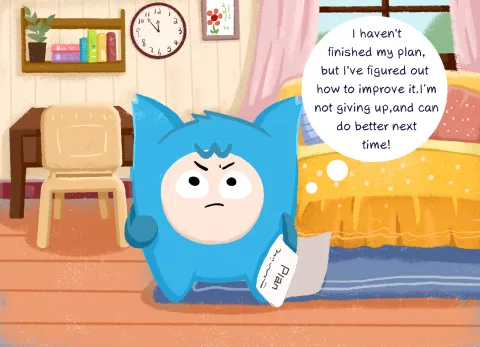Balancing Parenting Time and Me Time
Tips for spending quality time with your child during the COVID-19 pandemic
- Available in:
- 中文
- English
During the COVID-19 outbreak, you may be spending more time with your child, helping him or her with their online learning, playing and relaxing together, as well as potentially working from home. And unlike children, who can seem to have limitless energy, for parents this can be exhausting. If you’re feeling exhausted or overwhelmed, allow yourself to take a break. Children can sense your stress and exhaustion, and if you push yourself too hard you could lose your temper or break down.
Remember that your mental state influences how you interact with your child. Our first piece of advice is that you should be honest with your child if you’re feeling too tired to play. It’s hard not to feel guilty about this as a parent, but we all need a break sometimes and taking this time will help you engage with your child better in the end.
Share how you’re feeling
Seeing you express your feelings is crucial for your child to develop their social emotional skills. Everyone gets tired sometimes, and parents, as role models, should be honest with children about how you feel and why, so that children will understand they are not to be blamed. Use metaphors that children can easily understand, for example, “I’ve been running errands to three places today, and now my legs feel like lead and need to rest”.
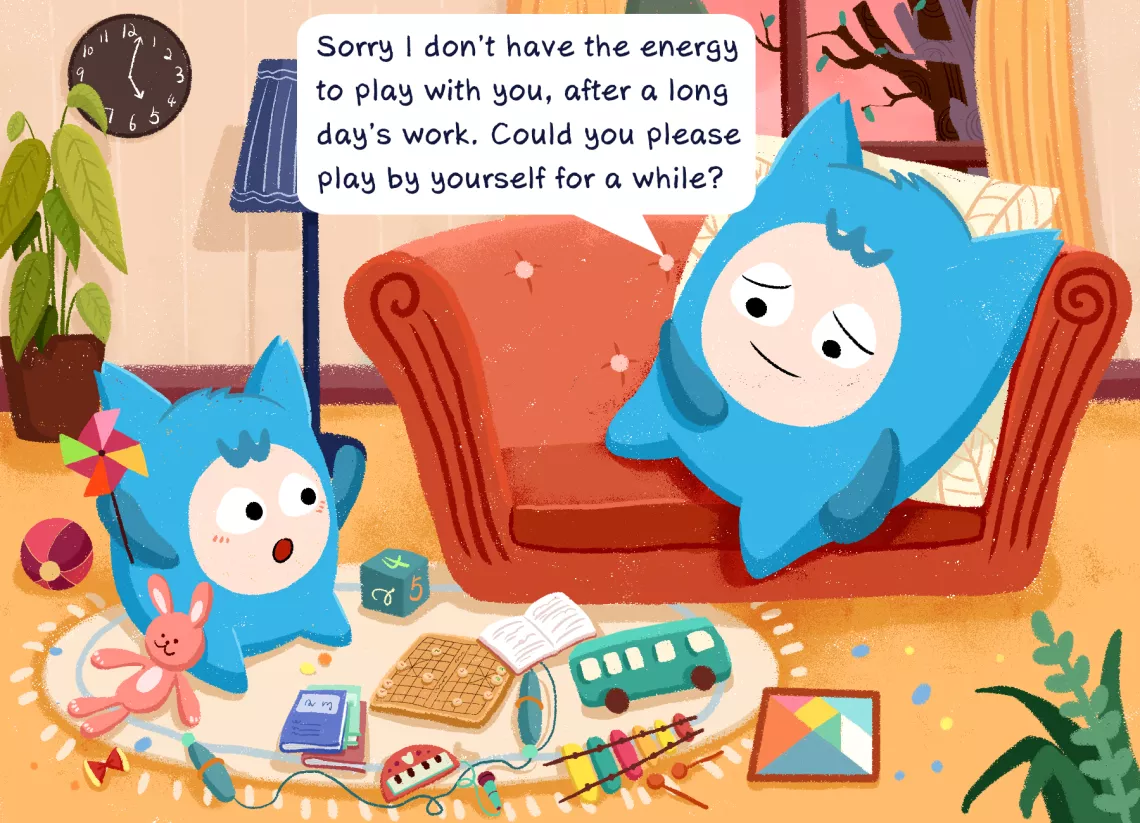
Suggest some solo game ideas
Let your child know that you value your time spent together, even though you are too tired to play at this moment. Offer some independent playtime ideas like playing with their toys, reading or drawing.
If he or she still insists on playing with you, take a second to reflect - perhaps that’s because you have been working long hours and your child has spent a lot of time playing alone. You could try one of the following approaches:
Set aside time to be together
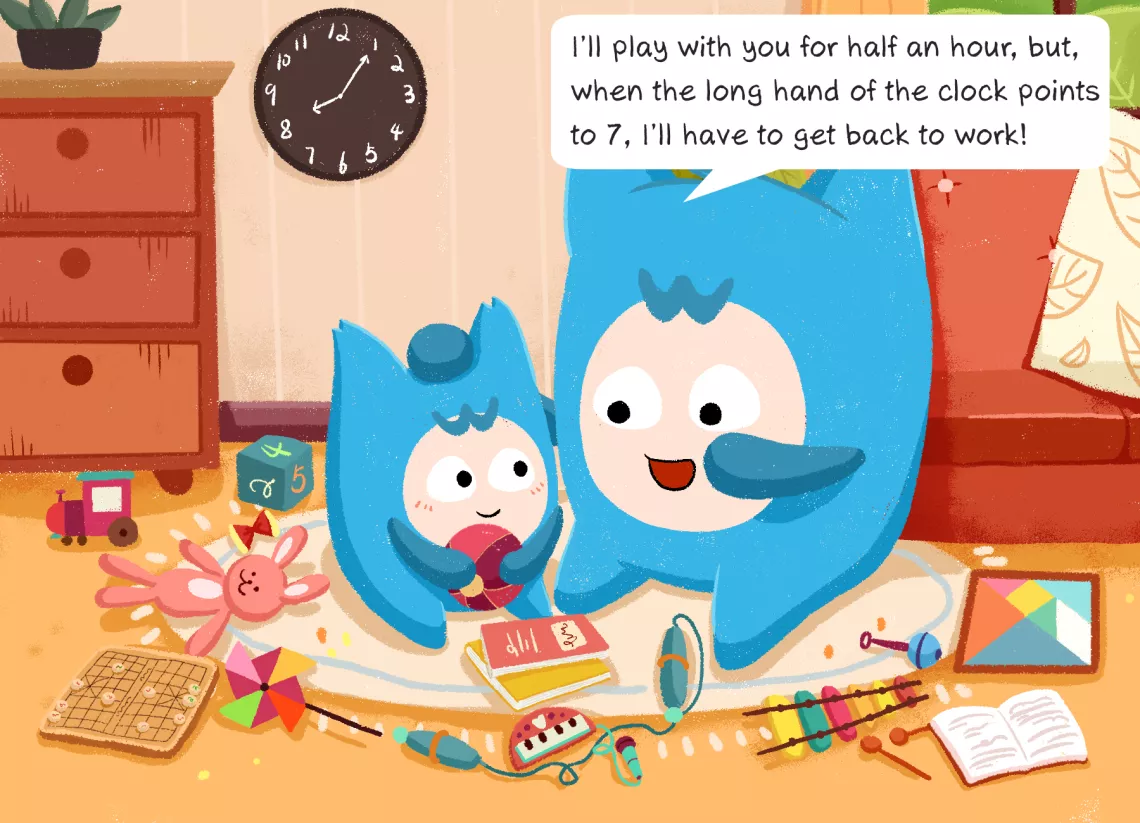
You can decide on a set amount of time for playtime. This signals to you that you can take a rest after this period (rather than being there for your child indefinitely). It also reminds your child that there is an agreed time window, so that he or she will not be surprised when it comes to an end.
You can also come up with some games that don’t require too much energy on your part, but mean you’re still spending quality time together. For example:
Try switching roles
Switch roles and ask your child to imitate your behaviors, such as working, doing housework, having time with kids, etc. You can act like a baby who needs to be cared for by the adult, or you can pretend it's time for the adult to tell stories to put the child to sleep. By switching roles, children will appreciate your hard work and understand you even better.
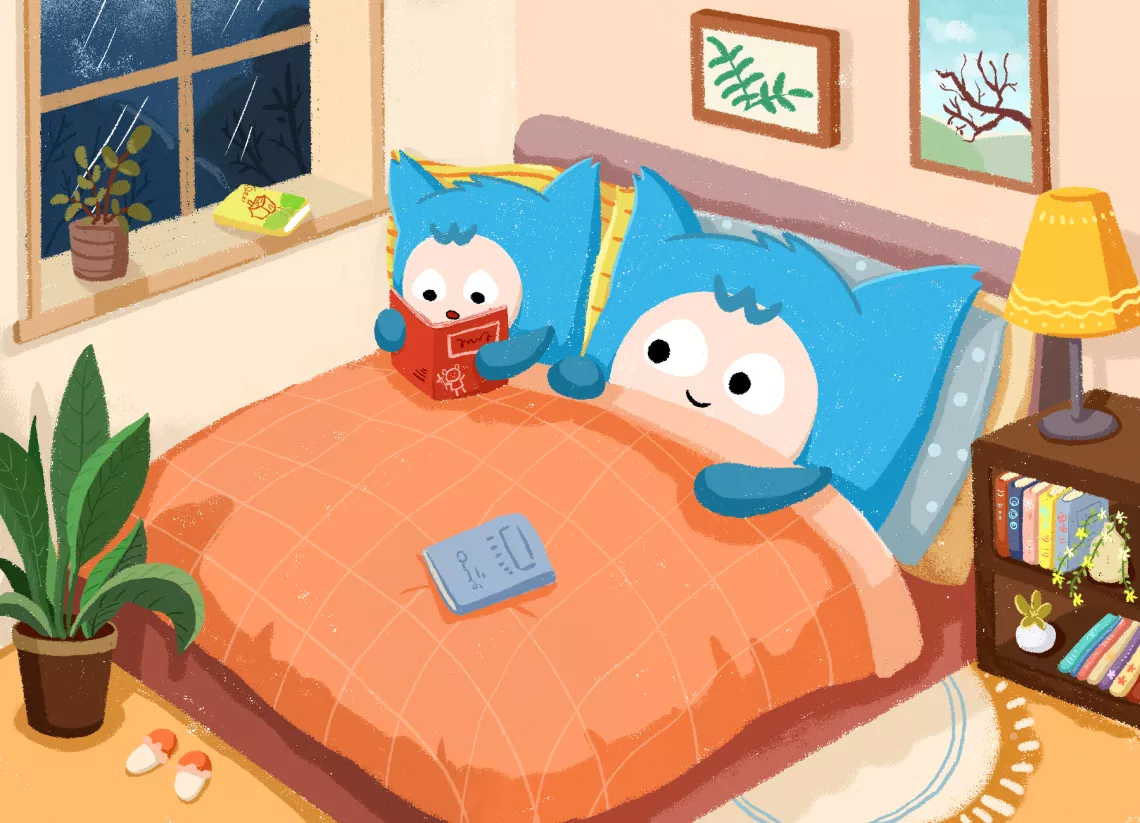
Role reversal games can nurture empathy within a child and help them better acknowledge and understand the feelings of others. This approach can also reduce parent-child conflicts by helping parents manage their feelings and guide children's behaviors.
Try playing some calm games
If you’re feeling tired, but still want to play with your child, try some calm games that require patience and focus, such as puzzles and blocks. Get under a blanket to create a “fortress” and pretend to be a spy receiving secret signals through the radio while listening to an audio book.
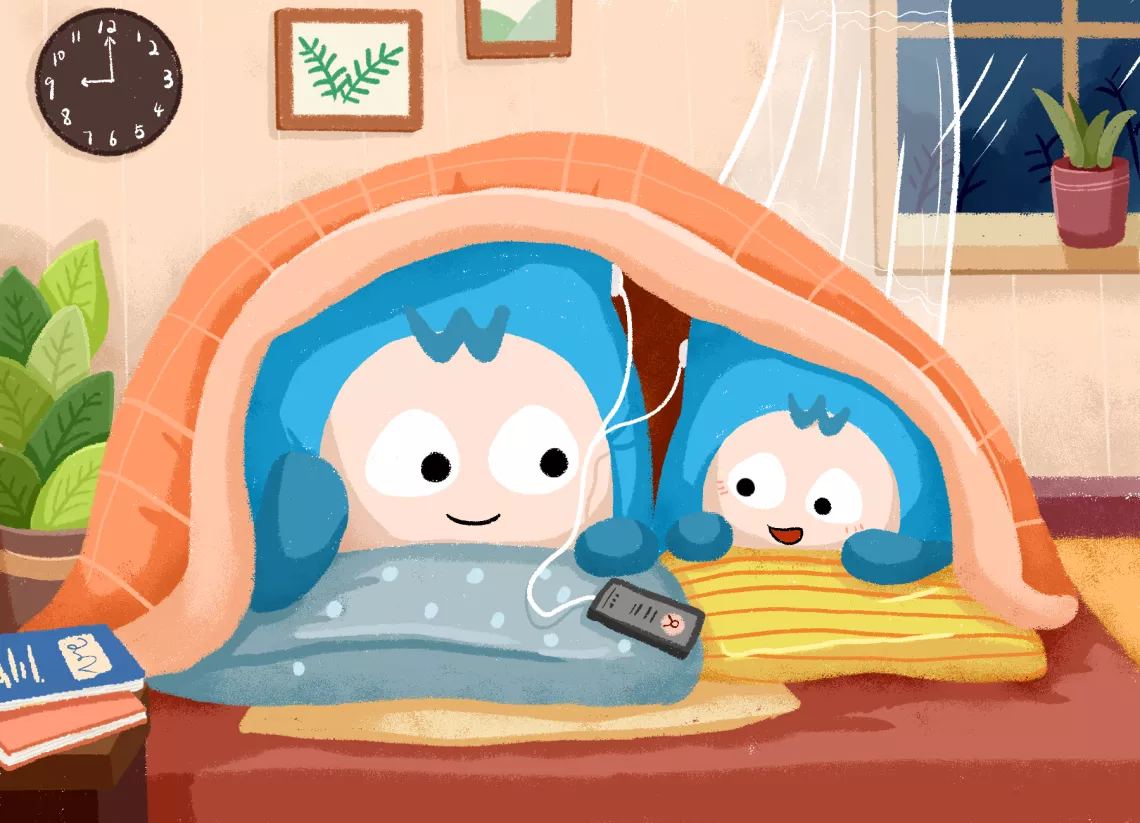
You can also play language games, such as listening to stories, or playing the “Last Letter Game” (take turns to saying words that start with the last letter of the previous word), with lights out and curtains drawn.
Finding time for yourself and for your child isn’t easy, but these tips can help you maintain a proper balance!



